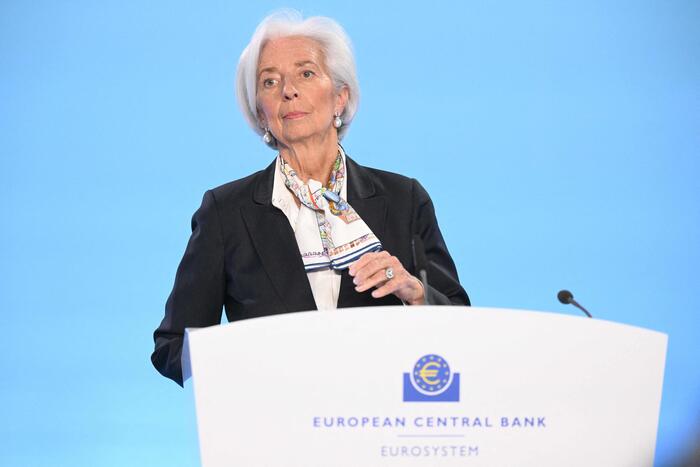If you're upset about your new, incredibly high gas down payment, at least you're not alone.
The state (i.e. the German taxpayers) has already spent billions of euros on the gas importer
Uniper
: eight billion for the shares and another eight billion to replace the loans from the Finnish group
Fortum
.
Since Uniper supplies more than 100 municipal utilities and industrial groups with gas, there seemed to be no alternative to nationalizing it.
But it comes even more expensive.
Up to 25 billion euros may also be needed to support the ailing gas buyers.
With the help of the state bank KfW
, the federal government is pushing
ahead with the quiet nationalization of the German energy industry: it has a direct stake in the gas importers Uniper and
Sefe
, it takes on the role of trustee at the refinery in Schwedt, and it
wants
to take over the notorious "Über "- skimming off profits.
When does it make sense for the state to get involved in companies?
How should he arrange things?
And when is it time to go again?
Our colleague Dietmar Student has pursued these crucial questions: What seems sensible in the short term can have serious negative consequences for Germany as a business location in the medium term.
Most recently, state investments in companies have gone wrong, as the examples of
Tui, HSH Nordbank
and
Commerzbank
show.
So far, the Uniper case has also turned out to be an expensive accident.
Interested parties are already circling individual parts.
Read here what the state has to do to prevent a billion dollar grave.
The business news of the day:
Protests in China weigh on the stock exchanges:
In China, popular protests against the strict measures of the government's zero-Covid policy are increasing.
Numerous people were arrested
during the largest wave of protests in decades, which is also directed against President
Xi Jinping .
The Dax and Dow Jones, which had each recovered by around 20 percent since the beginning of October, fell significantly at times on Monday.
The protests began at Foxconn, a Chinese supplier to Apple.
Italy is planning a 50 percent excess profit tax:
Germany's neighbor Italy is showing what a tax on crisis profiteers like
RWE
and
Eon
could look like.
According to a draft law, Italian energy companies that were able to increase their profits beyond measure during the crisis should give up up to 50 percent of them.
The government in Rome under the new Prime Minister
Giorgia Meloni
is hoping for additional income of 2.5 billion euros.
What else kept us busy:
Customers avoid organic food:
The market for organic food is currently experiencing the worst slump in more than 30 years, says
Alnatura
founder
Götz Rehn
.
In times of inflation, consumers shy away from supposedly expensive organic products: The prices in the organic sector have risen significantly less than for conventional products.
This reduces the price difference between organic and non-organic.
Our colleague Sina Osterholt explains what measures the industry is now taking to prevent the organic farms from dying.
Customers love luxury cars:
Unlike food manufacturers, the world's largest car manufacturers have not yet felt the effects of the current crisis.
Despite inflation and a slowing economy, most of them set records in sales and profits in the third quarter, according to a study by the consultancy EY.
The biggest winners in the industry were suppliers of luxury cars: In terms of operating profit, Mercedes-Benz was ahead of the world with around 5.2 billion euros.
The German manufacturers VW and BMW also made it into the top 5. Even in bad times, luxury sells.
Career tip of the day:
Negotiating without ifs and buts:
"I think your idea is good, but..." How often have you heard this sentence in conferences or negotiations?
No word is used as often as "but" and it's a real killer.
It sows distrust and changes the mood.
Our colleagues from Harvard Business Manager name three simple and powerful strategies for avoiding the word "but" and its consequences: For example, by deliberately only answering the phrase "I think your product is great, but it's too expensive". first part of the sentence: "What appeals to you about our product in particular? What advantages do you see? You can find the text "No buts to success" here.
My recommendation for the evening:
These bonds protect against inflation:
the idea is as simple as it is charming.
Long-dated bonds that have built-in inflation protection.
With the so-called "linkers" (inflation-linked bonds), investors shake off the danger of currency depreciation, as it were: the capital and interest of the linkers are linked to a price index and grow in step with it.
No other investment, neither gold nor stocks nor real estate, offers such an automatic process.
Since many investment professionals are again expecting sharp setbacks on the stock exchanges after the recent recovery, interest in linkers has now risen sharply, and not only among pension funds.
Our financial market expert Mark Böschen explains how investors can benefit from linkers - and where the pitfalls of these bonds lie.
Cordially, your Kai Lange









